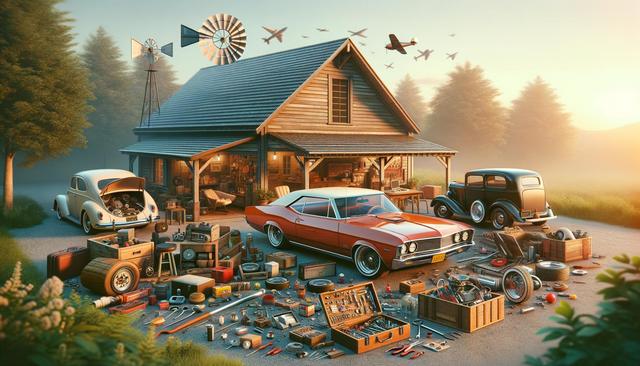Understanding What Makes a Car ‘Classic’
Before diving into the search for affordable classic cars, it’s important to understand what actually defines a car as ‘classic.’ While definitions vary slightly depending on the region or club, a classic car is typically a vehicle that is at least 20 to 30 years old and has historical interest due to its design, performance, or cultural relevance. Some cars gain classic status due to their rarity, while others become classics because they represent a specific era in automotive history. Knowing this can help you set realistic expectations regarding cost and availability.
It’s also important to differentiate between ‘classic,’ ‘vintage,’ and ‘antique’ cars. This classification can affect pricing and availability. For instance, vintage cars often refer to those made between 1919 and 1930, and they are usually more expensive due to their age and rarity. Focusing on cars from the 1970s to 1990s may offer more affordable options with readily available parts and easier maintenance.
Setting a Realistic Budget
Establishing a budget is one of the first and most essential steps in finding an affordable classic car. The cost of owning a classic vehicle goes beyond the initial purchase price. You should consider:
- Insurance costs (which can vary significantly for classic cars)
- Restoration or repair needs
- Ongoing maintenance and storage fees
- Parts availability and cost
While it’s tempting to go for the lowest price available, that could mean higher costs down the road if the car is in poor condition. Make sure to allocate part of your budget for post-purchase expenses. Sometimes spending a bit more upfront for a well-maintained vehicle saves money in the long run.
Where to Search for Affordable Classic Cars
Once you’ve defined what kind of classic car you want and how much you’re willing to spend, the next step is knowing where to look. Common sources include:
- Online marketplaces dedicated to classic and collector cars
- Local and regional car auctions
- Classic car clubs and forums
- Social media groups focused on car collectors
- Estate sales and barn finds
Each of these venues has its pros and cons. Online marketplaces offer convenience and a wide selection, but they can sometimes include inflated prices or questionable listings. Local car clubs are useful for networking and may lead to private sales where you avoid dealer markups. Auctions can produce great deals, but they also carry the risk of bidding wars. Be sure to do your homework before making any commitments.
Evaluating Condition and Authenticity
Affordability should never compromise quality. Assessing the condition and authenticity of a classic car is crucial, especially when you’re trying to stick to a budget. Here are key areas to inspect:
- Rust and corrosion, especially in the undercarriage and wheel wells
- Mechanical integrity and engine performance
- Originality of parts and paint
- Maintenance history and documentation
Hiring a qualified mechanic or car inspector with experience in classic vehicles can help you avoid costly mistakes. Documentation like the vehicle identification number (VIN), service records, and ownership history can also verify the authenticity and value of the car. Some sellers may market modified or replica models as originals, so doing due diligence is essential.
Negotiation and Finalizing the Purchase
Even if the car is listed at a seemingly affordable price, it’s often possible to negotiate a better deal. Classic car sellers are usually enthusiasts themselves and may be willing to lower the price for the right buyer. Approach the negotiation with respect and preparation. Bring your research, inspection results, and knowledge of comparable vehicles to the table.
Once a price is agreed upon, ensure that all paperwork is in order. This includes the title, bill of sale, and any documentation related to previous repairs or restorations. If you’re buying from out of state or from another country, be aware of additional taxes, registration, or import fees. Taking the time to finalize the transaction properly can prevent legal or financial issues later.
Conclusion
Finding an affordable classic car is entirely possible with patience, research, and a clear strategy. By understanding what qualifies as a classic, setting a realistic budget, exploring various sources, carefully inspecting potential purchases, and negotiating wisely, you can enter the world of classic car ownership without overspending. This guide is designed for enthusiasts who appreciate the charm of older cars but want to approach their purchase with informed decisions and financial prudence.






